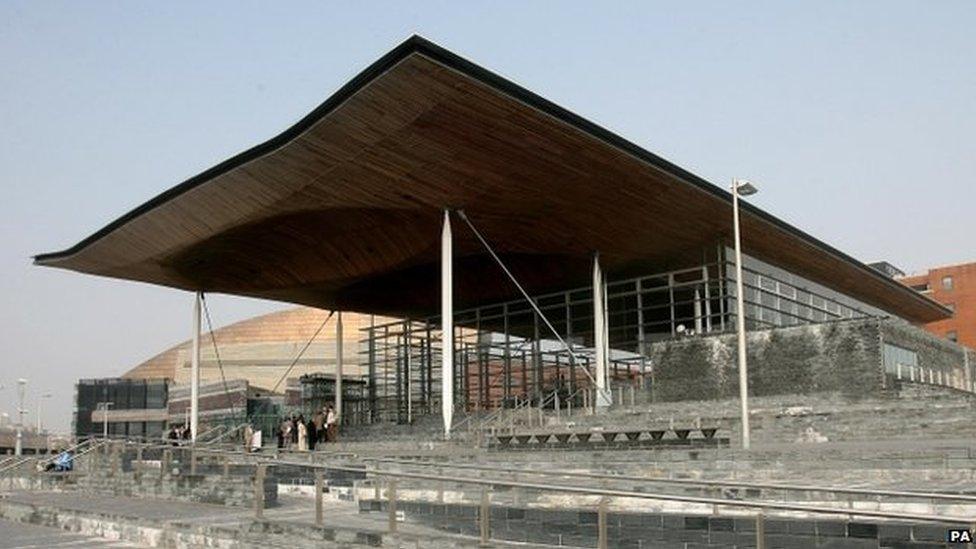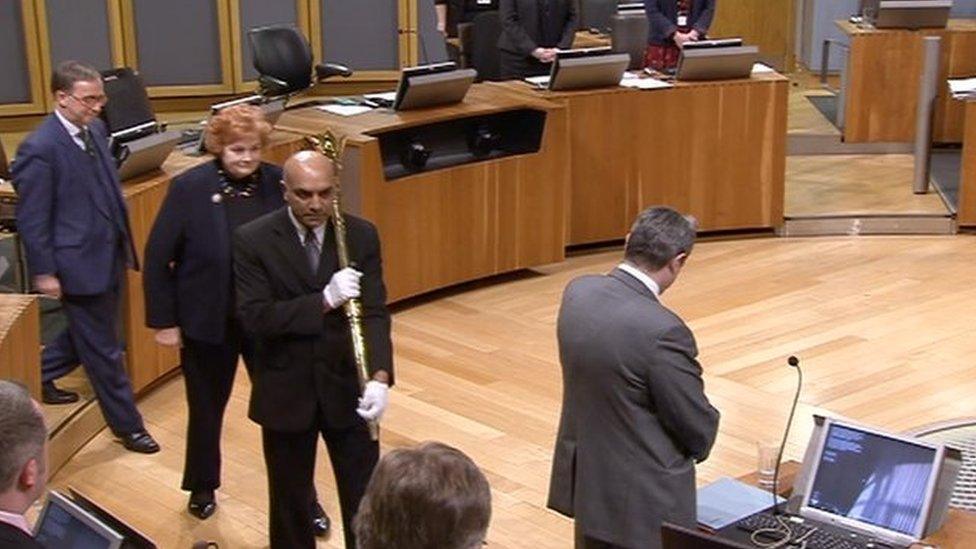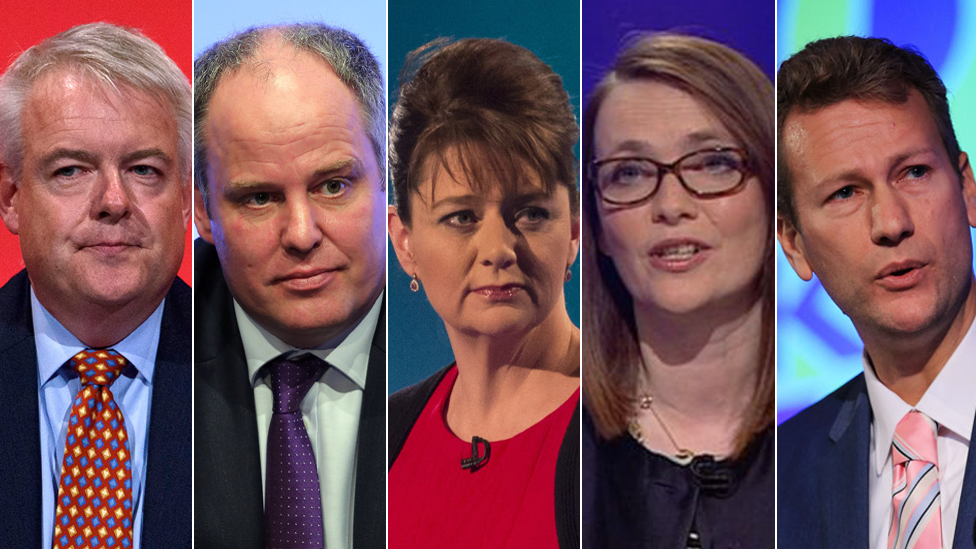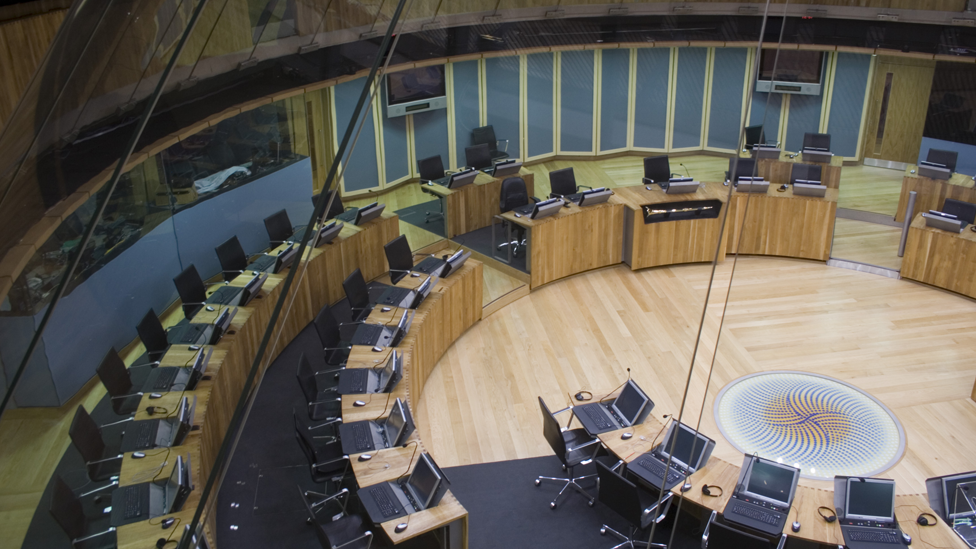Splits, EU noise and the NHS: Election campaign begins
- Published

And so it begins.
The campaign for the assembly's fifth election finally gets underway, although politics in Cardiff Bay has had a pre-election feel for a while now.
Much of the style of campaigning and events will have a familiar ring to them but this time around there will be fundamental differences.
For a start, all of the parties will be battling to get their voices heard against a noisy backdrop of the EU referendum campaign.
Then there is the UKIP factor - the party has a realistic chance of winning a number of seats for the first time and, in so doing, changing the dynamic of politics at the assembly.
All of the parties have problems to overcome.
Labour have the triple-whammy of criticism over their handling of the NHS, appearing fresh after 17 years in power and the unknown impact of their UK leader Jeremy Corbyn in marginal seats where they are up against the Conservatives.
And on the subject of disappointing elections, the Liberal Democrats have to try to bounce back from their crushing result last year.
The Tories have the job of ensuring divisions over the EU referendum do not derail attempts to maintain the party's momentum in Wales, after some eye-catching victories in the general election.
'Divisive issues'
Plaid Cymru has to create some kind of electoral momentum after a number of disappointing election results.
UKIP clearly has a major opportunity to return a handful of AMs, which would give them a power base they've lacked in any political institution in the UK so far, but they have been dogged by serious internal divisions.
An incoming Welsh Government will, in time, have more powers than any previous administration, but expect the campaign to be dominated by the NHS, which has been devolved since 1999.
The policy-makers will all have to wrestle with helping a health service under enormous financial pressure, while at the same time maintaining support in areas such as schools and the economy.
There are plenty of policies where there is broad consensus among the parties, such as the need for apprentices and business rate relief for small firms, but there are a number of highly-divisive issues, including plans for an M4 relief road and council reorganisation, where voters are facing genuine choices.
The jury is out on what will happen to turnout, which last time was 42%.
The danger is that assembly politics will be drowned out by the EU referendum, but at the same time media interest surrounding the NHS, in particular over the past five years, will also have raised the profile of devolution in the minds of the public.
- Published3 May 2016

- Published16 March 2016

- Published21 March 2016

- Published1 March 2016

- Published17 March 2016
